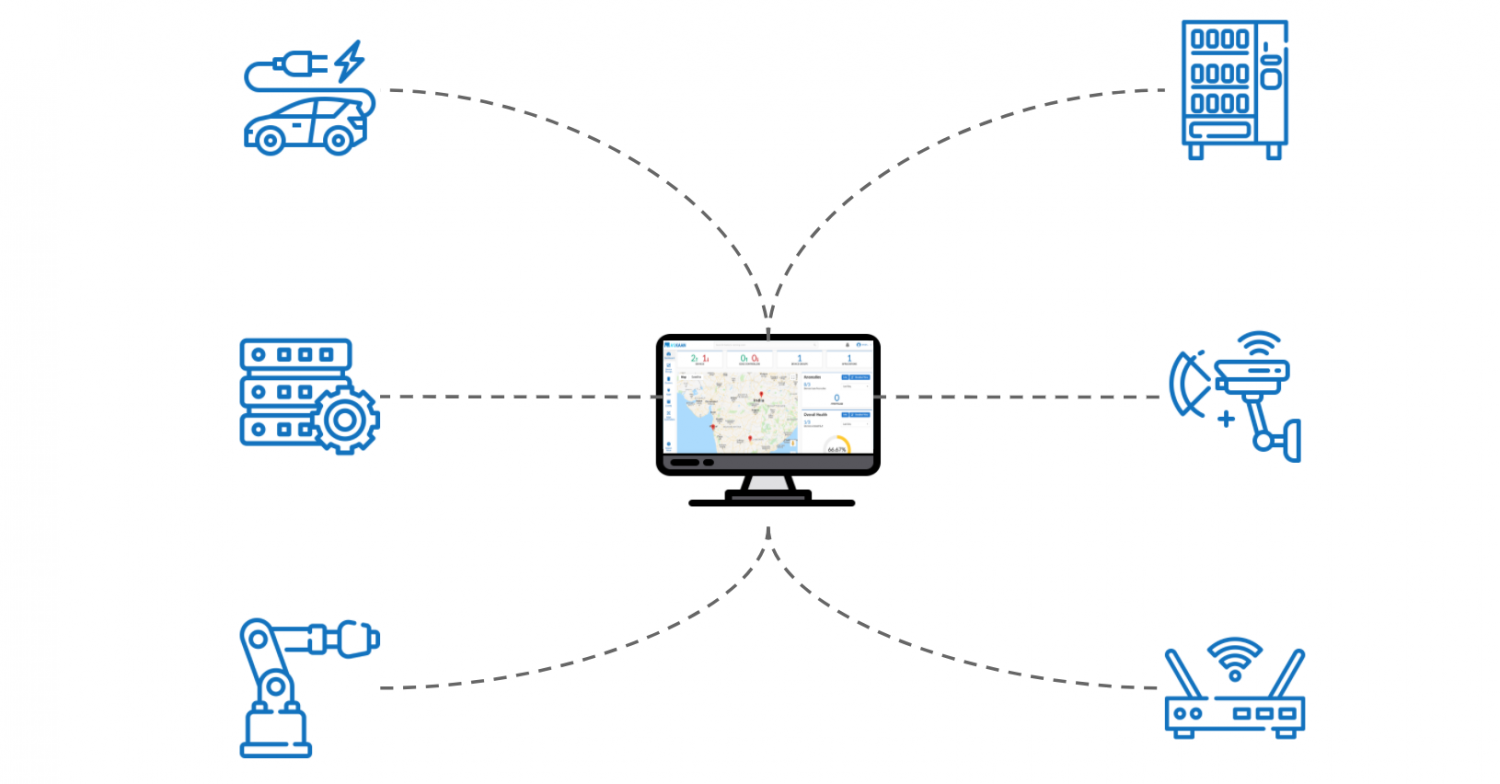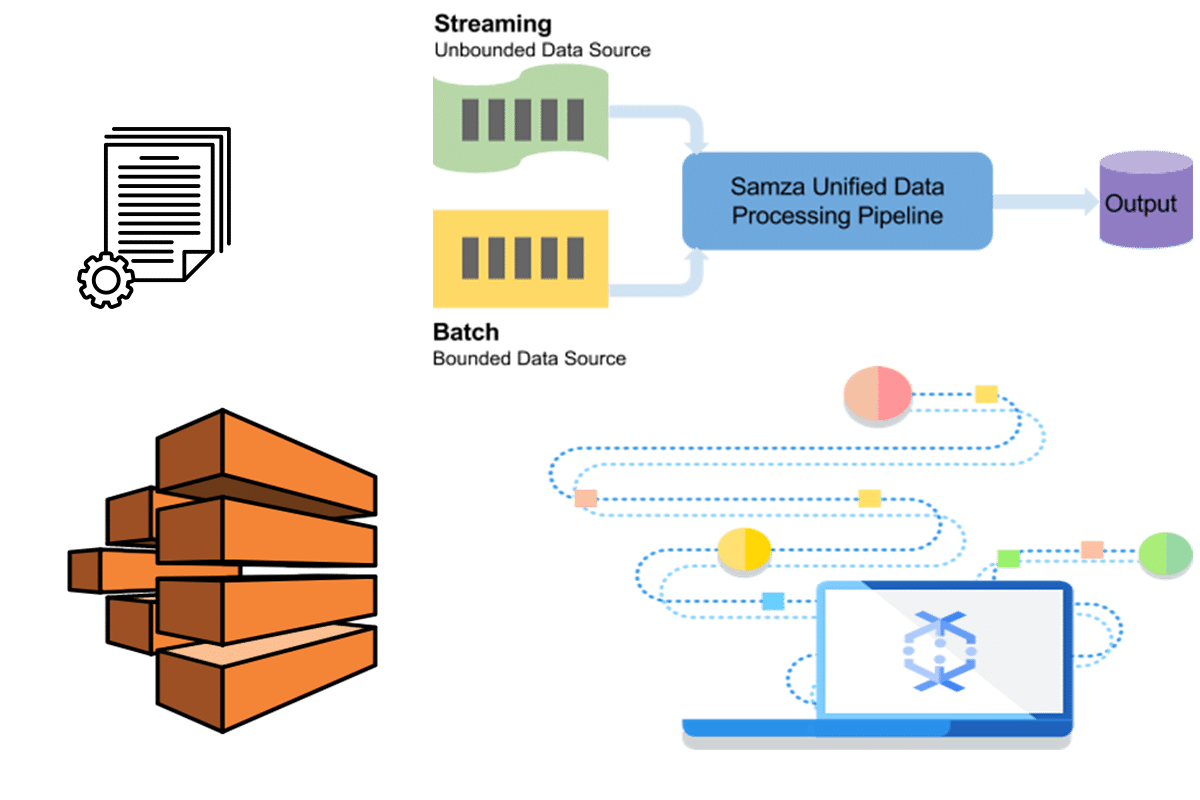Find Remote IoT Jobs: Your Guide To Batch Job Opportunities!
Are you ready to witness a paradigm shift in how we manage and utilize the vast expanse of data generated by the Internet of Things (IoT)? The future of work and technological innovation is undeniably intertwined with the capabilities of remote IoT batch jobs, promising unprecedented efficiency, flexibility, and opportunities.
The digital landscape is rapidly transforming, and at the heart of this evolution lies the Internet of Things (IoT). This interconnected network of devices, from smartphones and smart appliances to industrial sensors and wearable tech, is generating data at an exponential rate. This massive influx of information presents both challenges and opportunities. One of the most significant challenges is the need to efficiently process and manage this data, which is where remote IoT batch jobs come into play. The ability to remotely execute batch operations on IoT devices is no longer a futuristic concept; it's a present-day reality, reshaping industries and creating new avenues for innovation.
The power of remote IoT batch jobs is reshaping the technological landscape. These jobs allow for the remote execution of a series of operations on one or more IoT devices, streamlining processes and enhancing productivity. Consider this: imagine being able to update firmware on thousands of devices simultaneously, troubleshoot issues without physical access, or collect data from sensors across vast geographical areas, all from a central location. This level of control and efficiency is precisely what remote IoT batch jobs offer.
The appeal of remote work has exploded in recent years, with companies and professionals alike recognizing the benefits of flexible work arrangements. The convergence of IoT and remote work has created exciting new opportunities. Remote IoT batch jobs are at the forefront of this trend, enabling businesses to automate tasks, improve productivity, and create a more flexible work environment. This shift not only benefits businesses but also opens doors for professionals seeking remote work options in the dynamic field of IoT.
Many platforms and services are fueling this technological revolution. AWS IoT Jobs is a prominent example, providing tools to define and manage remote operations on connected devices. This includes everything from software updates to remote troubleshooting, all managed through a centralized interface. The availability of such tools simplifies the process of implementing remote batch jobs, making them accessible to a wider range of organizations.
As companies increasingly integrate IoT technologies, the demand for professionals skilled in managing remote batch jobs is also on the rise. The skills needed include expertise in IoT device management, cloud computing, data analytics, and cybersecurity. The demand for this skillset will continue to grow as more and more devices come online and the need to process the data they generate increases. This opens a wide range of career opportunities, from IoT developers and engineers to cloud architects and cybersecurity specialists.
The concept of remote IoT batch jobs is not just a theoretical exercise; it is already being implemented across a variety of industries. In manufacturing, these jobs are used to monitor and maintain equipment, optimize production processes, and predict maintenance needs. In healthcare, they are used to monitor patients remotely, manage medical devices, and improve patient care. In retail, they are used to track inventory, manage supply chains, and personalize customer experiences. The applications are vast and continue to expand as innovation progresses.
The efficiency gains are substantial. Consider the reduction in downtime for businesses. With remote batch jobs, software updates can be rolled out automatically. Troubleshooting becomes quicker, and performance can be enhanced remotely, all without the need for on-site visits or manual intervention. Further, remote monitoring provides valuable real-time insights into device performance, network usage, and potential issues, allowing for proactive intervention before problems arise. All of this directly translates into cost savings, increased productivity, and improved operational efficiency.
The integration of security devices, like cameras, sensors, and other IoT devices, with a central platform also increases in importance. Professionals are in demand to design, develop, and deploy integrations that ensure the security and reliability of IoT networks. This includes not only the devices themselves, but also the data they generate and the processes that control them.
The convergence of IoT and remote work is not merely a technological advancement; it also represents a significant shift in the way companies and professionals approach work. Its about enabling individuals to have more control over their work, allowing for better work-life balance. Moreover, it allows businesses to access a more global talent pool, as geographic limitations are reduced.
The rapid evolution of the IoT landscape means that learning and adaptation are essential. Professionals must continue to stay informed about the latest trends, technologies, and best practices. This includes embracing continuous learning, from cloud computing platforms to cybersecurity protocols, to adapt to the ever-evolving demands of this exciting field.
As the IoT landscape continues to evolve, the demand for skilled professionals will grow. It is a sector that opens the door for career development and professional growth. The opportunities are diverse and include roles in product management, technical leadership, and software development. Those who equip themselves with the right skills and knowledge will be positioned to lead and shape the future of IoT.
The digital transformation driven by IoT is making its mark on various sectors. From energy to agriculture, from transportation to finance, and beyond, businesses are leveraging IoT to streamline operations, create new revenue streams, and improve the customer experience. Batch jobs facilitate this transformation by providing a means to remotely manage and optimize devices across various industries.
The future is bright for remote IoT batch jobs. As more devices connect to the internet, and as the volume of data they generate grows, the ability to efficiently manage and process that data will become even more critical. Remote IoT batch jobs will become even more essential. The convergence of IoT and remote work will accelerate, providing new opportunities for innovation, flexibility, and professional growth. Companies and professionals who embrace these technologies and adapt to this changing landscape will undoubtedly thrive in the years to come.
The availability of information regarding remote IoT batch jobs is expanding. Numerous platforms, like Indeed.com, are actively listing positions, ranging from technical product owners and vice presidents of information technology to Python developers and cybersecurity specialists. These opportunities aren't just limited to established companies. Startups are also seeking talent to contribute to the growth of this fast-paced industry.
The development of IoT has also created a market for IoT developers, engineers, and architects. They're critical for the design, development, and deployment of integrations with various security devices. Their work ensures that data is securely transmitted, properly analyzed, and effectively used.
Another key aspect of this evolution is the ability to monitor CPU, memory, and network usage remotely, receive alerts based on monitored data, and run batch jobs. This provides a comprehensive overview of all IoT devices through a centralized dashboard, boosting both efficiency and visibility.
The world of remote IoT batch jobs is becoming the new normal. This concept, powered by platforms like AWS, is increasingly embraced by industries that are keen on enhancing productivity, automating tasks, and creating new opportunities for remote work. With the ability to remotely execute operations like firmware updates and security rotations, businesses are now equipped to manage devices on a large scale.
As we stand at the threshold of an increasingly interconnected world, the importance of the Internet of Things cannot be overstated. It is no longer just about connecting devices, but also efficiently managing the massive amounts of data generated by them. This has made remote IoT batch jobs a groundbreaking solution. As such, the future of work will inevitably be characterized by enhanced flexibility and remote opportunities.
For those keen on exploring career opportunities in the field, Google Careers provides a comprehensive platform. Similarly, exploring fully remote IoT jobs worldwide can be a rewarding venture. The convergence of the internet of things, and the capacity for remote work, offers a blend of exciting challenges and unparalleled opportunities.
| Feature | Details |
|---|---|
| Concept | Remote execution of batch operations on Internet of Things (IoT) devices. |
| Purpose | Streamline device management, automate tasks, improve productivity, and enable remote work opportunities. |
| Benefits | Increased efficiency, reduced downtime, cost savings, real-time insights, enhanced security, and greater flexibility in work arrangements. |
| Key Technologies & Platforms | AWS IoT Jobs and other platforms enabling remote operations, firmware updates, and troubleshooting. |
| Job Roles | IoT developers, engineers, solutions architects, cybersecurity specialists, technical product owners, and more. |
| Industries | Manufacturing, healthcare, retail, transportation, and more. |
| Skills Required | IoT device management, cloud computing, data analytics, cybersecurity. |
| Future Trends | Growing demand for remote IoT job roles, increased automation, convergence of IoT and remote work, and continued innovation. |


